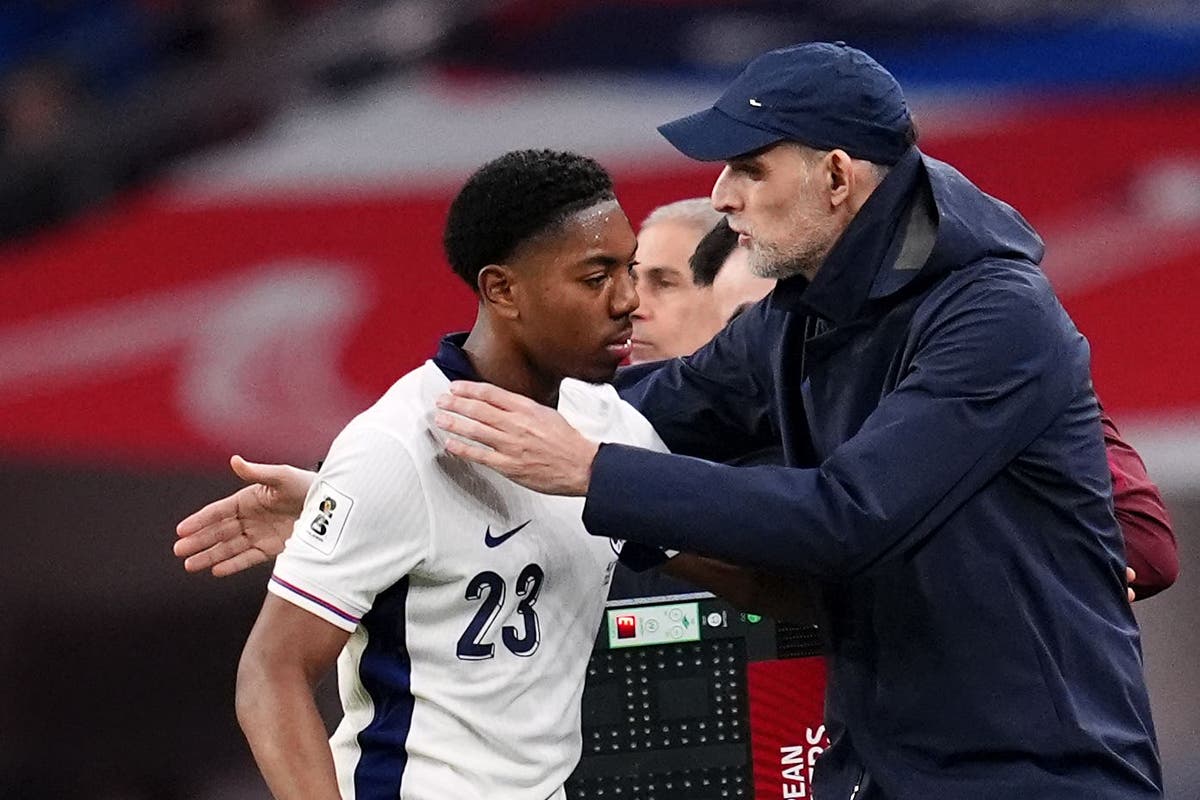There aren’t too many at Old Trafford who, as it stands, will look back on this season fondly. Yet there is a still smaller group of Manchester United players: those who have been fit for all of it.
Erik ten Hag’s results are wildly inconsistent but he shows consistency in citing their injuries. United have had more than 60; many lasting longer than originally forecast, sometimes taking out most or all of the players from one position. It got to the stage where even the seemingly indestructible Bruno Fernandes missed a couple of games.
It leaves a trio as the last men standing: only goalkeeper Andre Onana, Alejandro Garnacho and Diogo Dalot have not been injured. The full-back has leapfrogged the ubiquitous Fernandes to play the most minutes among outfield players, some 4,274. He has only sat out two of United’s 51 matches: when he was suspended at West Ham in December, following his dismissal for dissent at Anfield, and when he was an unused substitute on the opening night against Wolves. He has started 47 of the last 49, including 25 in a row. He has not missed a minute since January.
“I’ve become a bit more obsessed about being physically and mentally available for every game,” says Dalot; it may be an approach some of his teammates could do with copying. Dalot sees it as a Portuguese trait. In different ways, he has been influenced by three of his compatriots: by Fernandes, Cristiano Ronaldo and Jose Mourinho, who brought him to Old Trafford and tipped him to be United’s right-back for a decade.
And if that prediction is yet to be realised, it is in part because Dalot has stood in at left-back for swathes of this season. He has been inverted and overlapping, popping up in midfield, chipping in with three goals and five assists – the latter a total only bettered by Fernandes. “This year has been really good in terms of trying to do different things on the pitch that I wasn’t used to,” says the 25-year-old.
Recognition has come with United’s players’ player of the year award; he is the first Portuguese winner since Ronaldo in 2007. Portugal’s greatest player’s attitude has rubbed off on him, giving him a determination to be fit. “Especially after meeting Cristiano and spending a lot of time with him, I became a little bit more obsessed,” Dalot explains. “Not focusing on the quality of your football first: first ensuring you’re available and after that it was a routine for me.”
It makes Fernandes a soulmate. “He is showing that he’s doing everything that he can to play for the club and to help the club,” Dalot says. “It shows that if you are available, you are closest to play games. This is the kind of way that I think every club should go because if you have 70-80 per cent of the players available [for all of] every season, I think it’s going to be a lot easier than if you have 10-15 per cent.”
If a criticism is that United have too few warriors, Dalot is a welcome exception. He sees that battling spirit as a product of his nationality. “It can be a matter of culture, mentality, just something,” he explains. “We are always trying to, not survive, we are a small country but at the same time, we have a lot of quality in all areas but I feel that to get the recognition that you deserve you have to fight to go abroad.
“In Portugal, there’s not this culture, unfortunately, the same as in England. In England, they value a lot what is English. And in Portugal, it’s more what is from abroad it is good. So there’s always this culture about we have to survive so we can go abroad.”
The chances are that Dalot’s exile will continue. United will listen to offers for most of their squad but they would be unlikely to prove receptive to any bids for him. “It was always my goal to be here as long as the club wants me and as long as I can,” he says. “I have been working really hard to show people that I can be a very important player for the team.”
Dalot’s versatility forms part of his appeal. Although he can switch seamlessly from one flank to the other, he thinks the lack of continuity in the team has hindered United. “I remember in previous seasons when I played six or seven games in a row at right-back and then had to switch to the left-back for one game it was not the same thing, but now if I have one game on the right and the other on the left it will be normal,” he says. “But I don’t remember playing three games in a row with the same centre-back next to me or the same midfielder in front of me. It’s playing with the same guy next to you for a little bit of time so you can create routines with this teammate. It was really a struggle this season and something that we cannot hide.”
A struggle of a season could yet end with FA Cup glory but Dalot accepts United are outsiders in a Wembley derby on Saturday. “You shouldn’t be the underdog when you’re at Manchester United, but at the same time we’re facing a team that has been dominating English football – whether we like it or not – and we want to be there,” he says.
United’s malaise may occupy the thoughts of their new bosses from Ineos, but Dalot sees hope in the regime change at Old Trafford as Sir Jim Ratcliffe’s allies start to fill key roles. “They come ready to look at what changes do they need to do to build the team and put the team back on top,” he says. “They had amazing conversations with us, with players and staff. Everybody knows that they came here for actual change. I’m really excited and hoping that in the near future things might look a little bit different. But towards the direction where we feel that the club matches the standards that actually are the standards of the club.”
And if too few have upheld the standards of the club this season, Dalot is an exception in that, too.
Manchester City vs Manchester United, FA Cup final, kicks off on Saturday 25 May at 3pm. Coverage on BBC One starts at 1.50pm
Source: independent.co.uk



